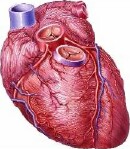Preliminary trial found the drug effective
FRIDAY, May 15, 2015 (HealthDay News) — Botulinum toxin (Botox) shows potential for preventing atrial fibrillation in patients who undergo invasive heart surgery, according to research scheduled for presentation Thursday at the annual meeting of the Heart Rhythm Society, held from May 13 to 16 in Boston.
For the study, Evgeny Pokushalov, M.D., Ph.D., a professor of medicine at the State Research Institute of Circulation Pathology in Novosibirsk, Russia, and colleagues included 60 patients who had a history of atrial fibrillation before their surgery. Half the patients had Botox injected directly into epicardial fat pads during coronary artery bypass graft surgery; the other half received a placebo injection.
There were no immediate complications from either type of injection, and there were no complications for the length of the study, which lasted for one year after the surgery. Only 7 percent of the patients who received Botox went on to experience atrial fibrillation during the pivotal one-to-three-week period following surgery. This compared with 30 percent of patients who didn’t get Botox. Also, slightly more than one-quarter of the non-Botox group experienced recurring bouts of atrial fibrillation during the 11 months following surgery. In contrast, none of the Botox patients experienced atrial fibrillation during the same time frame.
“Of course, we need to continue to look at this with a wider, bigger study that has more patients,” Pokushalov told HealthDay. “But the data we already have is good. And it could lead to a big change for how we handle patients who undergo open-heart surgery. We might also be able to use this technology following any type of invasive surgery. And also for patients who don’t undergo surgery at all but are at a high risk for atrial fibrillation. This is something we are looking into in the future.”
Copyright © 2015 HealthDay. All rights reserved.








